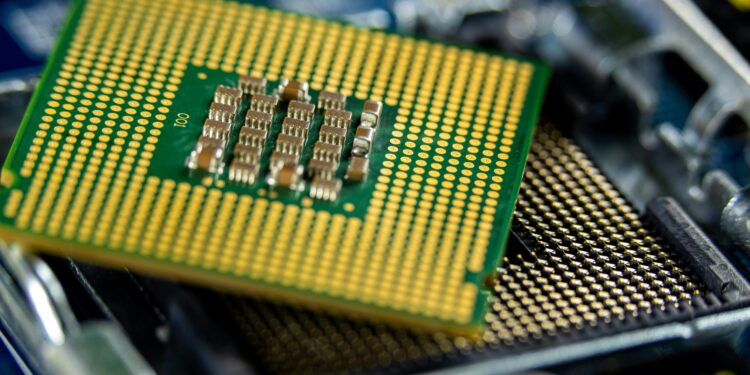Record Revenue, Strong AI Demand, and Resilience Amid Export Bans Push Stock Toward All-Time High
Nvidia (NASDAQ: NVDA) shares surged 5% in early Thursday trading after the semiconductor giant reported better-than-expected first-quarter results, buoyed by booming demand for artificial intelligence chips—even as U.S. export restrictions to China dealt a multibillion-dollar blow.
The rebound marks a sharp reversal from earlier this year, when Nvidia stock was down nearly 30% by April. Thursday’s move brings year-to-date gains to 5%, edging the stock closer to its all-time closing high of $153.13 set on January 7.
Nvidia’s quarterly reports have become high-stakes events, often producing big stock swings. The last eight quarters have seen shares move an average of 7.4% either way post-earnings, underscoring investor sensitivity to AI-related growth signals and geopolitical risks.
The biggest headline this quarter came from Nvidia’s China business, where U.S. government restrictions blocked the sale of H20 chips. The company reported a $2.5 billion sales loss from these bans and warned of another $8 billion impact in the second quarter. A $4.5 billion inventory charge related to unsold China-bound chips also weighed on results—but that was $1 billion less than feared.
Excluding the charge, Nvidia posted adjusted earnings of $0.96 per share, beating analyst expectations of $0.93. Including the China inventory hit, earnings came in at $0.81.
Despite the geopolitical drag, Nvidia reported record revenue of $44.1 billion, topping estimates of $43.3 billion. Year-over-year revenue growth slowed to 69.1%, down from a staggering 262% a year ago—but still far ahead of most large-cap tech peers.
Its data center segment—key to powering AI workloads—continued to shine. Sales hit $39.1 billion, driven by major customers like Amazon, Microsoft, and Google. Hyperscalers contributed nearly half of the segment’s revenue.
“This was a really strong quarter, all things considered,” said Benchmark Company managing director Cody Acree in a Yahoo Finance interview. “To weather an $8 billion China hit and still hit key revenue targets is a win.”
The company’s future remains deeply tied to the AI arms race unfolding across both Big Tech and startups. Nvidia CFO Colette Kress said Microsoft had already deployed “tens of thousands of Blackwell GPUs” and expects to scale that to “hundreds of thousands” of next-gen GB200 chips—many earmarked for OpenAI, Microsoft’s AI research partner.
CEO Jensen Huang struck a cautious tone on U.S.-China dynamics during the earnings call, acknowledging that China continues advancing its AI capabilities. “China’s AI moves on with or without U.S. chips,” Huang warned, underscoring the broader strategic risks facing Nvidia in a rapidly evolving global market.
Still, the message investors heard loudest was Nvidia’s dominance in the AI chip space. As tech giants and startups pour billions into building AI infrastructure, Nvidia remains the central supplier—positioning it to weather geopolitical turbulence and maintain its pivotal role in the next era of computing.
You might like this article:Telomir Pharmaceuticals Reports Breakthrough in Oral Therapy for Vision Loss











